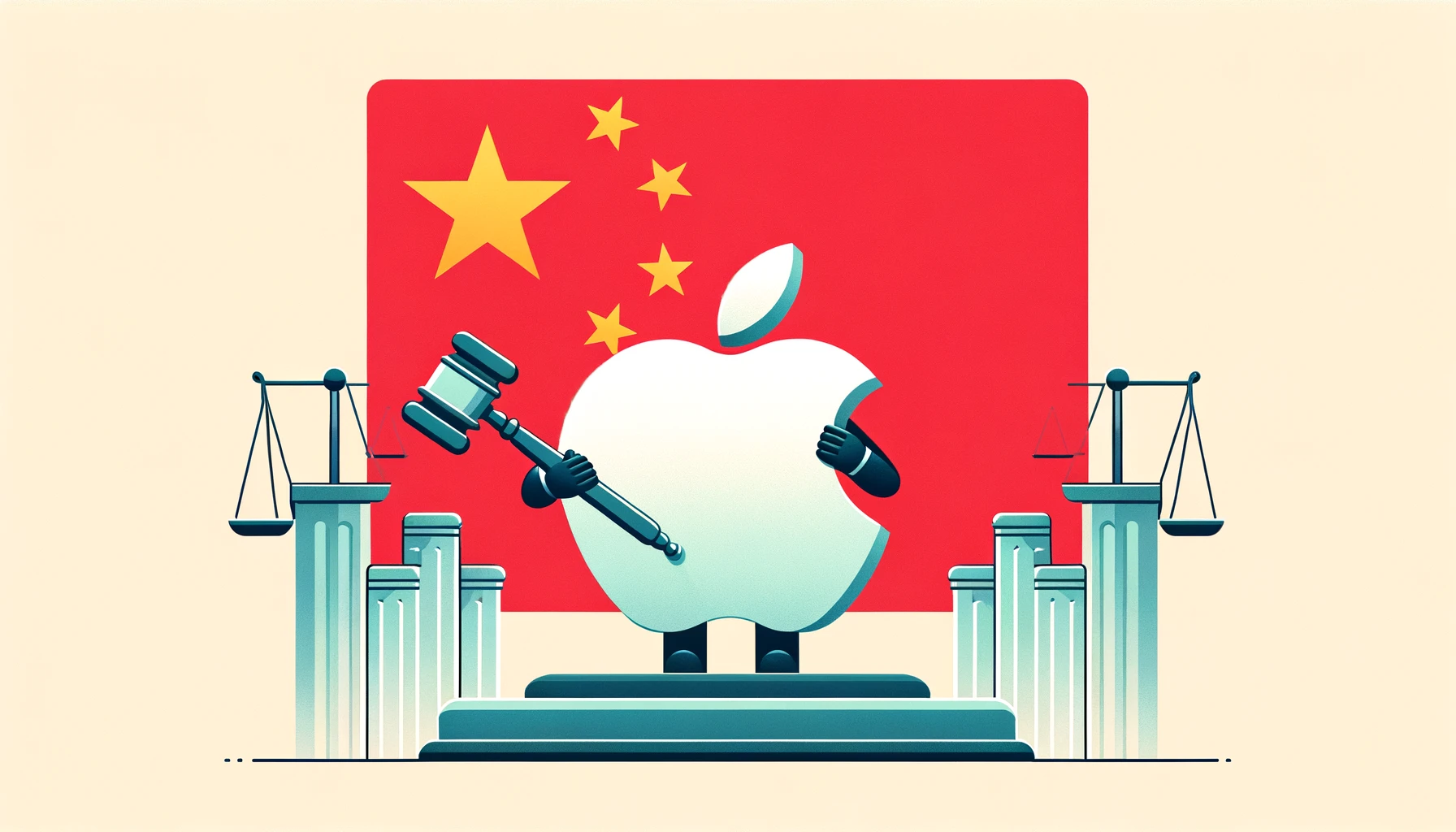
A Chinese court has dismissed a case filed by a local consumer against Apple Inc’s commission fees for purchases via its App Store, offering the US technology giant some relief amid increasing global scrutiny of its business practices. The Shanghai Intellectual Property Court’s decision marks a significant development for Apple, which faces similar legal challenges worldwide.
The Shanghai Intellectual Property Court concluded that Apple had not abused its dominant position in the App Store market, according to a verdict seen by Bloomberg News. The court heard the case brought by Jin Xin earlier this week. This legal challenge followed a 2021 decision by China’s Supreme Court, which allowed the case and other similar complaints against Apple to proceed.
Jin Xin, the plaintiff, argued that Apple’s 30% commission on in-app purchases and the requirement to use Apple Pay constituted an abuse of market dominance. However, the court’s dismissal of the case indicates that it did not find sufficient grounds to support these claims.
Apple is defending its App Store fees on multiple fronts, including lawsuits in the United States, Europe, South Korea, and Japan. The resolution of the Chinese complaint relieves one potential pressure point for the company, which has consistently argued that its fees are justified by the security and convenience provided to users and the global platform it offers to developers.
The Shanghai court’s decision arrives at a crucial time for Apple, as it navigates various regulatory and legal challenges. A US federal judge recently criticized a top Apple executive for maintaining a non-competitive environment in the App Store, despite a previous ruling that mandated the company to allow links to alternative online payment options for app developers.
The case against Apple in China was part of broader challenges the company faces in the region. Apple is contending with intense competition from Huawei Technologies Co. in the premium smartphone market, rising nationalist sentiment, and trade tensions between Beijing and Washington. These factors have threatened to undermine Apple’s position in one of its most significant markets.
Last year, Beijing extended a ban on foreign devices in official workspaces, further complicating Apple’s operations in China. Demand for iPhones in the country plummeted in the first two months of this year, only recovering in the past two months due to aggressive discounts and promotional deals.
Apple’s strategy and market position are influenced by various regulatory changes worldwide. In January, Apple announced historic changes in response to the European Union’s new Digital Markets Act. These changes include allowing customers to download software from outside the App Store and use alternative payment systems for the first time.
Apple’s Legal Challenges and Regulatory Responses
| Region | Legal Challenge | Regulatory Response |
|---|---|---|
| United States | Lawsuit over App Store fees and payment options | Ordered to allow alternative payment links |
| Europe | Compliance with Digital Markets Act | Permits third-party app downloads and payment systems |
| South Korea | Legal challenges to App Store fees | Adjustments to fee structures |
| Japan | Regulatory scrutiny over market practices | Ongoing legal defense |
| China | Case dismissed on abuse of market dominance claims | No immediate regulatory changes |
- Dismissal of the Case: The Shanghai Intellectual Property Court ruled in favor of Apple, stating the company did not abuse its dominant market position.
- Global Legal Defense: Apple is engaged in legal battles in multiple jurisdictions over its App Store practices.
- Competition in China: Apple faces significant competition from Huawei and challenges from rising nationalist sentiment.
- Regulatory Adjustments: Apple has made changes in response to new regulations, particularly in Europe with the Digital Markets Act.
- Market Impact: Demand for iPhones in China experienced volatility, with recent recoveries attributed to discounts and deals.
The court’s dismissal of Jin Xin’s case provides Apple with a temporary respite, but the company’s broader challenges in China remain formidable. Trade tensions and nationalist sentiments are significant factors that could impact Apple’s market performance in the region. Additionally, the competitive pressure from domestic companies like Huawei continues to pose a threat to Apple’s market share.
The global scrutiny of Apple’s App Store practices indicates that the company must navigate a complex landscape of legal and regulatory challenges. The adaptations Apple has made in Europe, such as allowing third-party app downloads and alternative payment methods, may set a precedent for future adjustments in other regions.
Apple’s ability to maintain its market dominance and navigate regulatory pressures will be crucial in determining its future success. The company’s response to legal challenges and regulatory changes will likely shape its business strategies moving forward.
As Apple continues to defend its App Store fees and practices, the outcome of ongoing and future legal battles will play a significant role in defining the company’s operational landscape. The Shanghai court’s decision is a notable victory for Apple, but the broader context of global scrutiny underscores the ongoing challenges the tech giant faces.
The Shanghai Intellectual Property Court’s dismissal of the case against Apple over App Store fees offers the company some relief amid a myriad of global legal challenges. Apple’s defense of its business practices and regulatory adaptations will be key to its future operations and market position. As the company continues to navigate a complex legal landscape, the implications of these challenges will have far-reaching effects on its business strategy and market presence.
Related News:
Featured Image courtesy of DALL-E by ChatGPT
